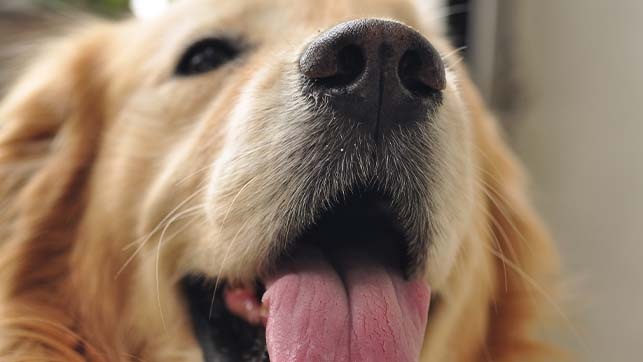Why Are Dogs’ Noses Wet?

why are dogs noses wet
Introduction: why are dogs noses wet
Dogs have long fascinated humans with their unique characteristics, one of the most notable being their perpetually wet noses. This article delves into the reasons behind this intriguing trait, exploring its biological, functional, and health-related aspects why are dogs noses wet.
The Biological Basis of a Dog’s Wet Nose
Mucous Glands and Secretion
The primary reason for a dog’s wet nose lies in the mucous glands located inside their nostrils. These glands secrete a thin layer of mucus that covers the surface of the nose. This mucus plays a crucial role in several physiological functions. It helps trap and dissolve scent particles, making it easier for dogs to detect and analyze different smells why are dogs noses wet.
Evaporation and Cooling Mechanism
Another reason for the wetness of a dog’s nose is the natural cooling mechanism it provides. Dogs do not sweat through their skin as humans do; instead, they regulate their body temperature through panting and the evaporation of moisture from their noses. This process helps them stay cool, particularly in hot weather or after strenuous activity.
Enhancing the Sense of Smell
Scent Detection
A wet nose significantly enhances a dog’s sense of smell. The moisture on the nose aids in capturing scent particles from the air, which are then dissolved in the mucus. This makes it easier for the olfactory receptors inside the nose to detect and interpret various smells. A wet nose, therefore, is essential for tasks that rely heavily on scent detection, such as tracking, hunting, and search and rescue operations why are dogs noses wet.
Olfactory Efficiency
The efficiency of a dog’s olfactory system is unparalleled. With over 220 million scent receptors (compared to a human’s 5 million), dogs can detect scents at incredibly low concentrations. The wetness of their nose plays a pivotal role in this, ensuring that scent particles are efficiently trapped and processed why are dogs noses wet.
Health Indicators
Sign of Good Health
A wet nose is often considered a sign of good health in dogs. It indicates that the mucous membranes are functioning correctly and that the dog is well-hydrated. Veterinarians often check the moisture level of a dog’s nose during routine health examinations as an indicator of overall health.
Detecting Illness
While a wet nose is generally a sign of health, changes in its condition can signal potential health issues. A dry or cracked nose might indicate dehydration, fever, or other underlying health problems. Conversely, an excessively runny nose could be a sign of respiratory infections or allergies. Monitoring the condition of a dog’s nose can provide early warnings of potential health concerns.
Behavioral and Environmental Factors
Licking and Self-Cleaning
Dogs frequently lick their noses, which helps to keep them moist. This behavior serves several purposes, including self-cleaning and maintaining the nose’s sensitivity to smells. Licking also helps spread the mucus evenly across the nose, ensuring it remains wet and functional of the why are dogs noses wet.
Environmental Influences
The environment also plays a role in the wetness of a dog’s nose. Humidity levels, temperature, and exposure to different surfaces can all affect the moisture levels. For instance, a dog that spends a lot of time outdoors in a humid environment may have a wetter nose compared to a dog in a dry, indoor setting.
Common Myths and Misconceptions
Wet Nose Equals Good Health (why are dogs noses wet)
While a wet nose is generally associated with good health, it is not an absolute indicator. Dogs can have wet noses and still be unwell. It is essential to consider other signs and symptoms in conjunction with the nose’s condition when assessing a dog’s health.
Dry Nose Equals Illness
Similarly, a dry nose does not always mean a dog is sick. Temporary dryness can result from environmental factors, such as lying near a heat source or spending time in a dry climate. If the dryness persists or is accompanied by other symptoms, it is advisable to consult a veterinarian.
Conclusion
Understanding why dogs have wet noses provides insight into their unique biology and behavior. The wetness of a dog’s nose is a multifaceted trait that plays a crucial role in enhancing their sense of smell, regulating body temperature, and indicating health status. By appreciating this aspect of canine physiology, we can better care for and understand our furry companions why are dogs noses wet.






